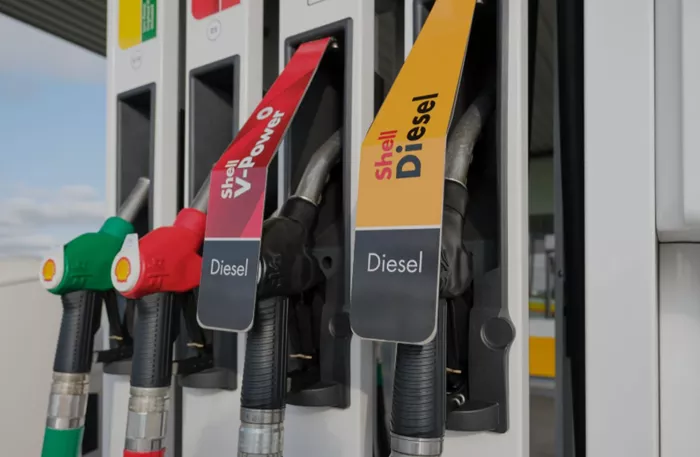Premium diesel is a high-quality fuel designed to provide better engine performance, efficiency, and longevity compared to standard diesel. It contains advanced additives that enhance combustion, reduce emissions, and clean engine components. With increasing fuel quality demands, premium diesel has gained popularity among vehicle owners, fleet operators, and industries relying on diesel engines.
This article explores what premium diesel is, its composition, benefits, differences from standard diesel, and its impact on engine performance and the environment.
What is Premium Diesel
Composition and Additives
Premium diesel is an enhanced version of standard diesel fuel. While both fuels share the same base petroleum composition, premium diesel includes specialized additives such as:
- Detergents – Prevent carbon deposits and clean fuel injectors.
- Lubricity enhancers – Reduce friction between engine components.
- Cetane improvers – Increase ignition quality for smoother combustion.
- Corrosion inhibitors – Protect metal components from rust and damage.
- Stabilizers – Enhance fuel longevity and prevent degradation.
- Anti-foaming agents – Reduce air bubbles for better fuel delivery.
These additives make premium diesel a superior choice for engines requiring higher efficiency and protection.
Differences Between Premium Diesel and Standard Diesel
Higher Cetane Number
Premium diesel typically has a higher cetane number than standard diesel. Cetane rating measures the fuel’s ignition quality. A higher cetane number means faster combustion, leading to:
- Quieter engine operation
- Reduced emissions
- Improved fuel efficiency
Enhanced Lubricity
Premium diesel contains lubricity enhancers that help reduce wear and tear on engine components, particularly fuel injectors and pumps. Standard diesel may lack these additives, causing more friction and faster component degradation.
Cleaner Combustion
The presence of detergents in premium diesel ensures that injectors remain clean, preventing clogging and improving fuel atomization. Standard diesel may lead to soot buildup, reducing efficiency over time.
Lower Emissions
Premium diesel burns more completely, reducing particulate matter, nitrogen oxides (NOx), and sulfur emissions. This is beneficial for meeting strict environmental regulations.
Stability and Storage Life
Premium diesel includes stabilizers that prevent oxidation and degradation, making it a better option for long-term storage. Standard diesel, when stored for long periods, can form sediments and degrade in quality.
Benefits of Using Premium Diesel
Improved Engine Performance
Premium diesel enhances engine responsiveness and acceleration due to better combustion properties. It ensures smoother idling and reduced knocking.
Increased Fuel Efficiency
With a higher cetane number and better lubrication, premium diesel improves fuel economy, reducing overall fuel consumption.
Reduced Maintenance Costs
By keeping the fuel system clean and reducing engine deposits, premium diesel minimizes maintenance needs and extends engine life.
Better Cold-Weather Performance
Premium diesel often includes cold flow improvers, preventing fuel gelling in low temperatures. This is particularly useful for vehicles operating in harsh winter conditions.
Does Premium Diesel Work for All Diesel Engines?
Light-Duty Vehicles
Many modern diesel passenger vehicles can benefit from premium diesel due to its cleaner-burning properties and efficiency improvements.
Heavy-Duty Trucks
Fleet operators often prefer premium diesel as it reduces maintenance costs and increases operational efficiency.
Marine and Industrial Applications
Marine vessels and industrial machinery using diesel engines also benefit from premium diesel’s enhanced lubricity and stability, reducing the risk of fuel degradation.
Is Premium Diesel Worth the Extra Cost?
Premium diesel is generally more expensive than standard diesel due to its enhanced additives and refining process. However, the benefits it provides can justify the cost, especially for those who:
- Want to maximize engine lifespan
- Require better fuel efficiency
- Operate in cold climates
- Need lower emissions for regulatory compliance
Environmental Impact of Premium Diesel
Lower Carbon Footprint
Premium diesel reduces greenhouse gas emissions due to its cleaner combustion. It emits fewer pollutants, contributing to improved air quality.
Compliance with Emission Standards
With increasing government regulations on emissions, premium diesel helps diesel engines meet stringent environmental standards, making it a preferred choice for businesses focusing on sustainability.
Conclusion
Premium diesel is a superior fuel option for diesel engines, offering benefits such as improved performance, better fuel efficiency, lower emissions, and extended engine life. Although it comes at a higher price, the long-term advantages make it a worthwhile investment for many users. Whether for personal vehicles, commercial fleets, or industrial applications, premium diesel remains a key choice for those seeking optimal engine performance and sustainability.
FAQS
1. Is Premium Diesel Just Regular Diesel with a Different Label?
Premium diesel contains advanced additives that improve performance, efficiency, and longevity.
2. Does All Diesel Engines Require Premium Diesel?
While premium diesel offers benefits, some older diesel engines may not need it. However, using it can still improve engine cleanliness and efficiency.
3. Does Premium Diesel Always Increase MPG Significantly?
While premium diesel can improve fuel economy, the extent depends on engine type, driving conditions, and maintenance practices.

